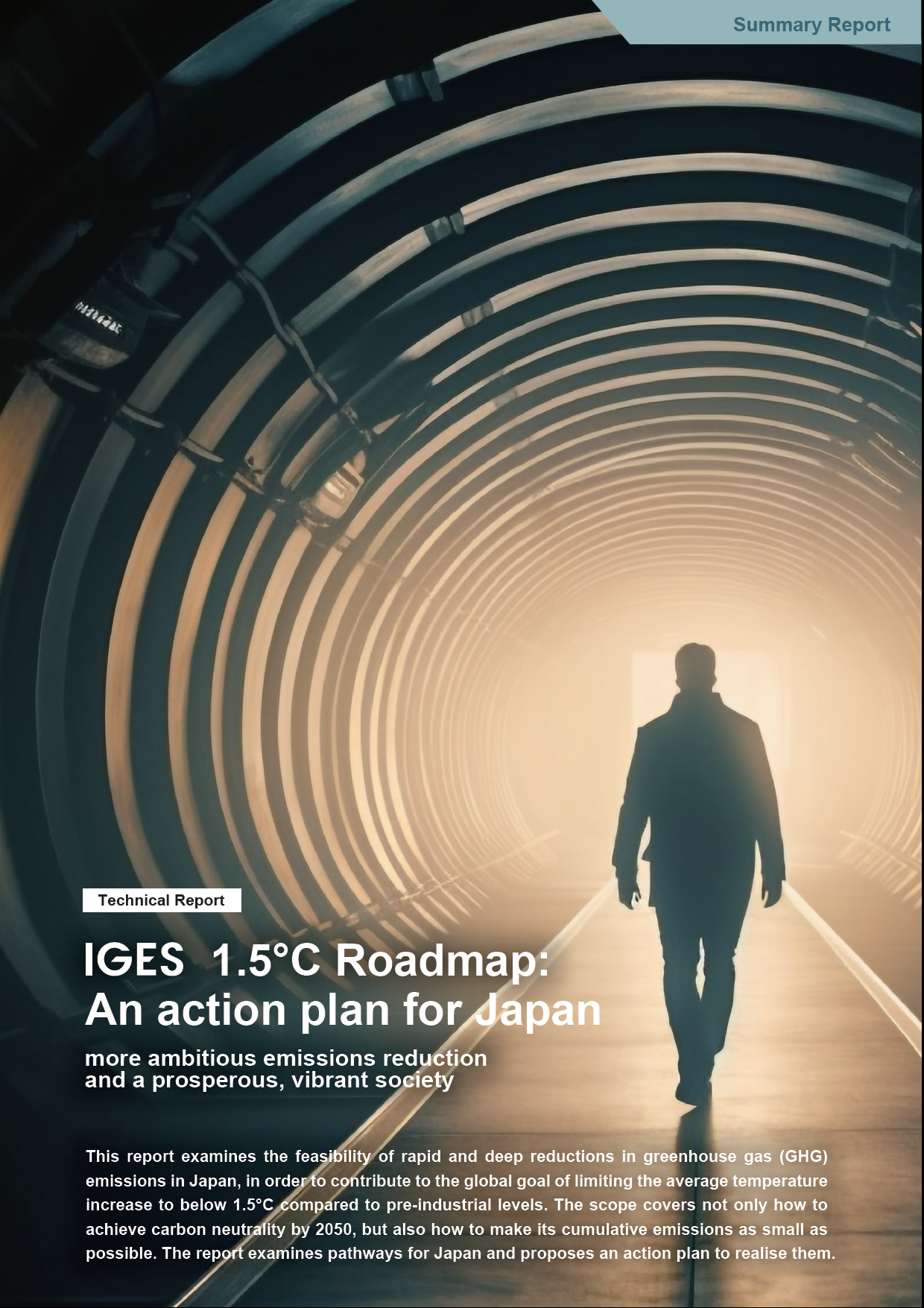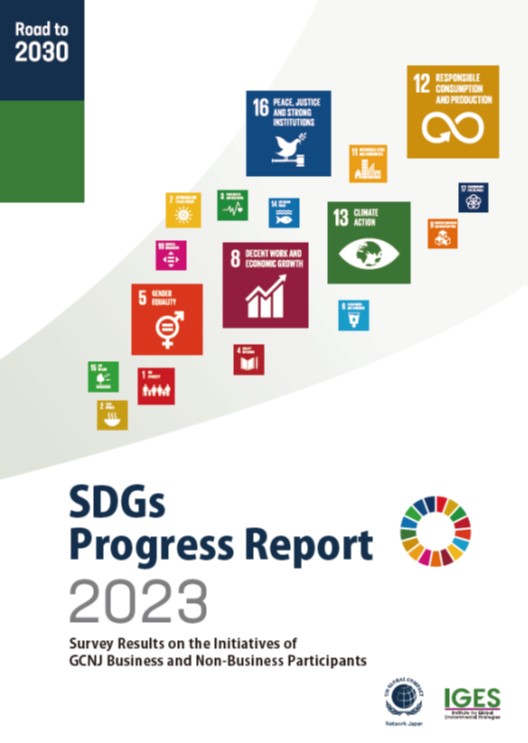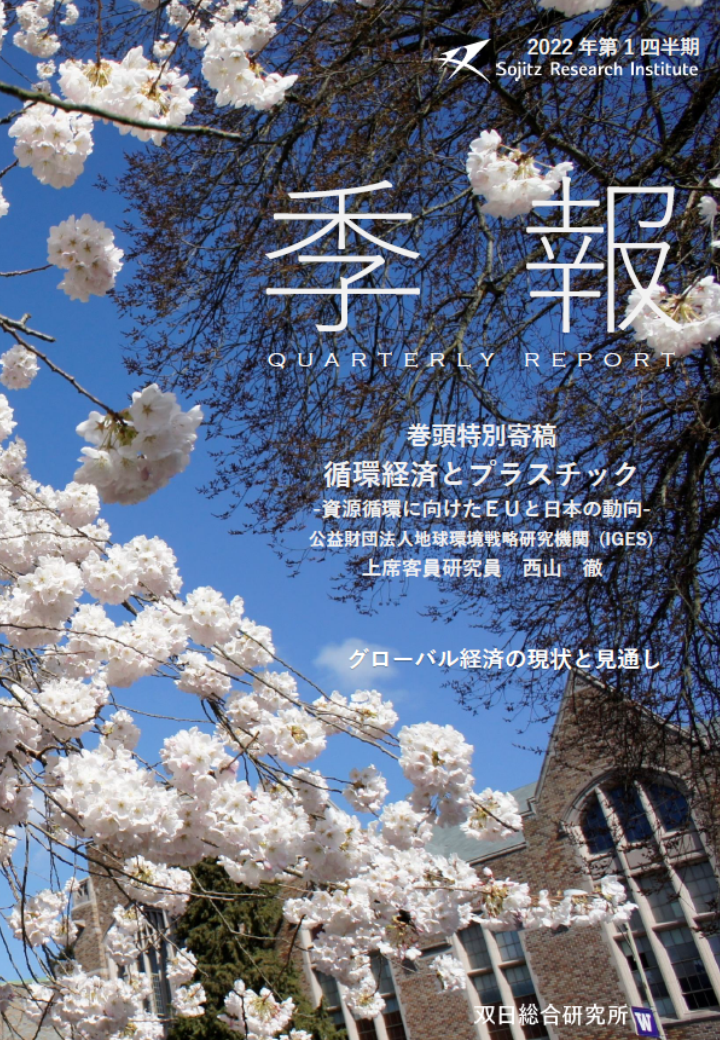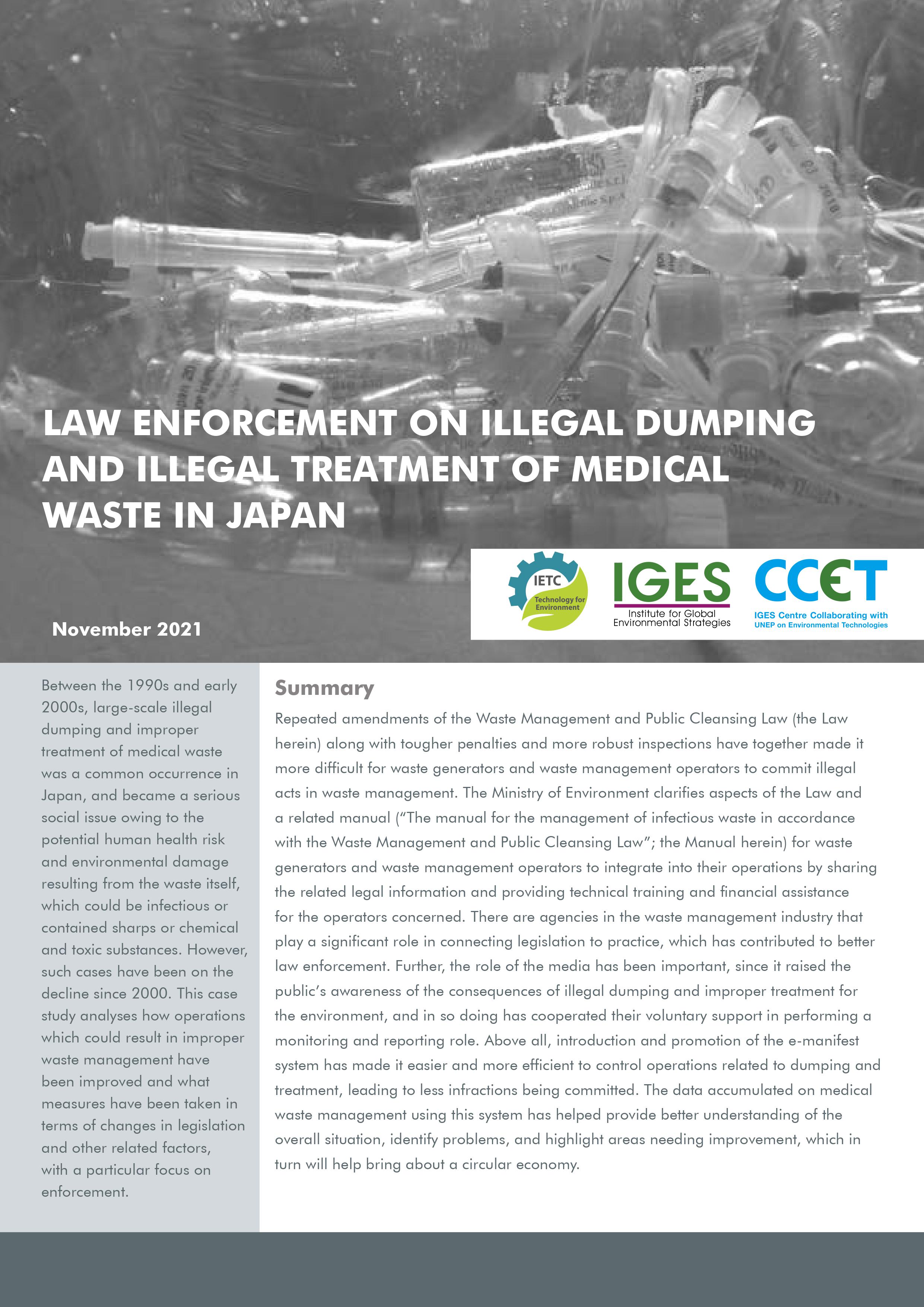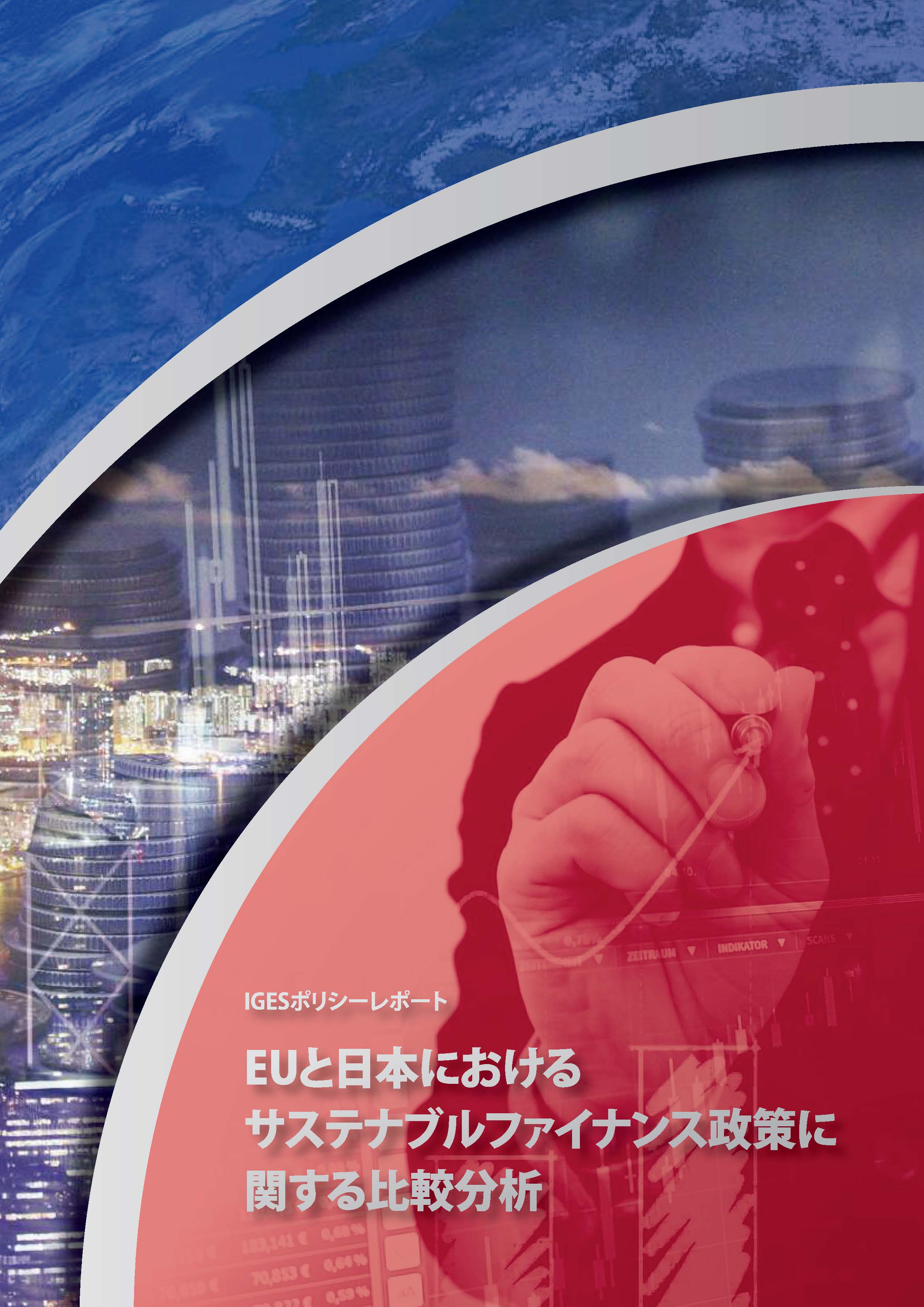本レポートは、世界平均気温の上昇を産業革命前と比べて1.5℃以内に抑えるという目標の達成に向けて、2050年までにカーボンニュートラルを実現するだけではなく、累積排出量をできる限り小さくする観点から、日本国内で早期に大幅な温室効果ガス(GHG)排出量削減を果たす可能性を検討し、その実現のためのアクションプランをまとめたものである。 2024年4月2日更新 謝辞の追記、出典の追記、誤記の修正を行いました。 企業の方向けに使いやすく再構成した「 1.5℃ロードマップ - 脱炭素でチャンスをつかむ。未来をつくる。 」もご活用ください。
- Clear all
- Topic: (-) Greening Business
- Topic: (-) Resource Efficiency and Circular Economy
- Region/Country: (-) Caribbean
- Region/Country: (-) Eastern Africa
- Region/Country: (-) Japan
Results 1 - 10 of 53 (Sorted by date)
This report examines the feasibility of Japan not only achieving carbon neutrality by 2050, but also making significant reductions in greenhouse gas (GHG) emissions, so as to make its cumulative emissions as small as possible, thereby contributing to the global goal of limiting the average temperature increase to below 1.5°C compared to the pre...
In Circular Economy Adoption Catalysing Decarbonisation Through Policy Instruments
This chapter provides the most recent policy frameworks for sound material-cycle society (SMCS) and promoting the 3Rs (reduce, reuse, and recycle) as well as circular economy transition in Japan, with some illustrations of the best practices carried out by the private sector and Japanese local governments as outcomes.
Keywords:
This report includes an analysis of the level of awareness of the SDGs, as well as the progress made in addressing the five SDG Goals (thematic themes) that the UN Global Compact focuses on: Goals 5 (gender equality), 8 (work and human rights), 13 (climate change) and 16 (anti-corruption), and Goal 12 (sustainable consumption and production), which...
In Sustainability MDPI
Information and Communication Technologies (ICT) have been identified as potential enablers for alternative forms of sharing surplus food to prevent food loss and waste. Food sharing platforms can also provide an entry point to the sustainability transition by encouraging its users to confront the systemic causes of unsustainable and inequitable...
In 双日総合研究所 季報
循環経済(サーキュラー・エコノミー)とは、天然資源採掘や廃棄を最少化しながら付加価値を最大化する経済活動を意味する。これまでの大量生産、大量消費、大量廃棄を前提とした「線形経済」(リニア・エコノミー)に代わり、あらゆる段階で資源の効率的・循環的な利用を図る。本稿は、EU と日本における循環経済の確立に向けた政策に関し、特にプラスチックに焦点を当て、ビジネスチャンスを考察する。2020 年に EU が「新循環経済行動計画」を、日本が「循環経済ビジョン 2020」を公表しており、循環経済は新しい経済モデルとなる可能性が高まる。日本では 2022 年 4 月に「プラスチック資源循環促進法」が施行される。これにより製造業者に環境配慮設計を促す公的認定制度の創設など、循環経済の制度設計が進むなか...
Keywords:
Between the 1990s and early 2000s, large-scale illegal dumping and improper treatment of medical waste was a common occurrence in Japan, and became a serious social issue owing to the potential human health risk and environmental damage resulting from the waste itself, which could be infectious or contained sharps or chemical and toxic substances...
Keywords:
サステナブルファイナンスに関するグローバルな関心の高まりがみられる中、本レポートは、日本とEU におけるサステナブルファイナンス関連の政策を比較するものである。本レポートの目的は、日本とEU におけるサステナブルファイナンス関連の政策の概要を提示し、それぞれの特徴を明らかにするとともにその共通点や違いを分析することにある。日本とEU は、それぞれの政府が積極的にサステナブルファイナンス政策を展開するものの、そのアプローチや戦略は異なっている。本レポートは、日本とEU のサステナブルファイナンス政策の理解に寄与することでサステナブルファイナンスについての議論や取り組みの一助となることを期待するものである。
Global Compact Network Japan (GCNJ) and the Institute for Global Environmental Strategies (IGES) launched of a report “SDGs and Business in the ESG era: Actions by Companies and Organisations in Japan”.* This latest report includes the results of the questionnaire survey as well as how both financial institutions and companies address ESG finance...
In the context of the current global surge of interest in sustainable finance, this report presents the findings of a study comparing the policy landscapes covering such issues in Japan and in the EU. The objective of the report is to provide an overview of, and identify the key characteristics deployed in each of these two jurisdictions, and then...


